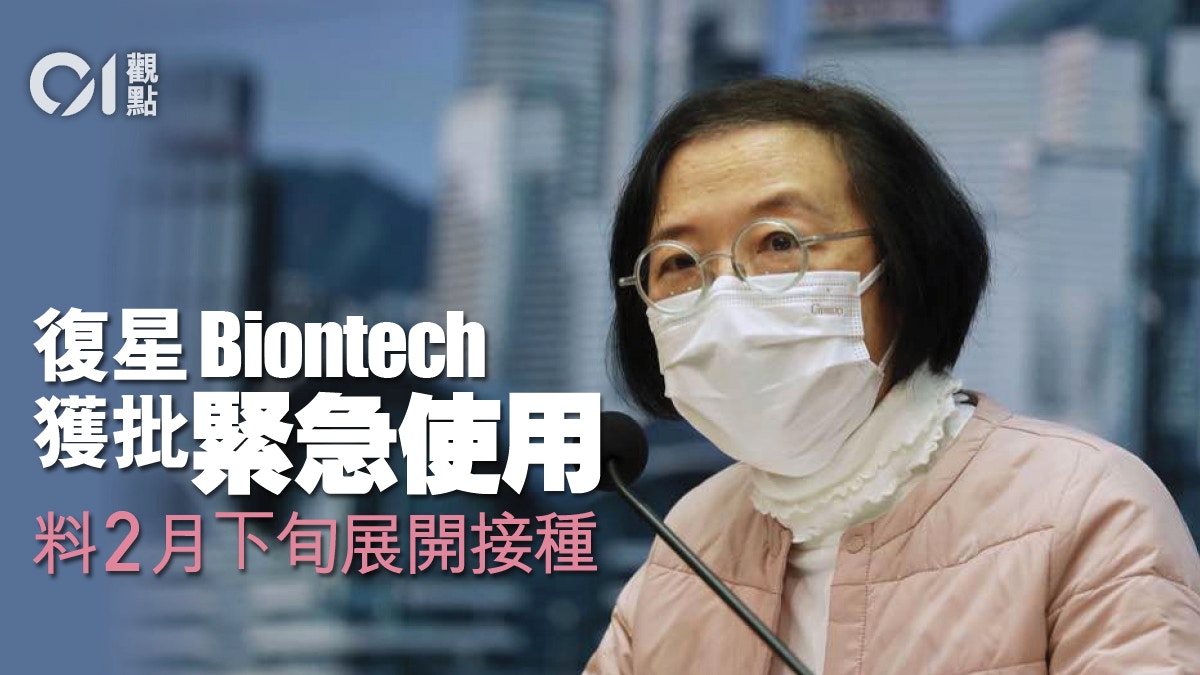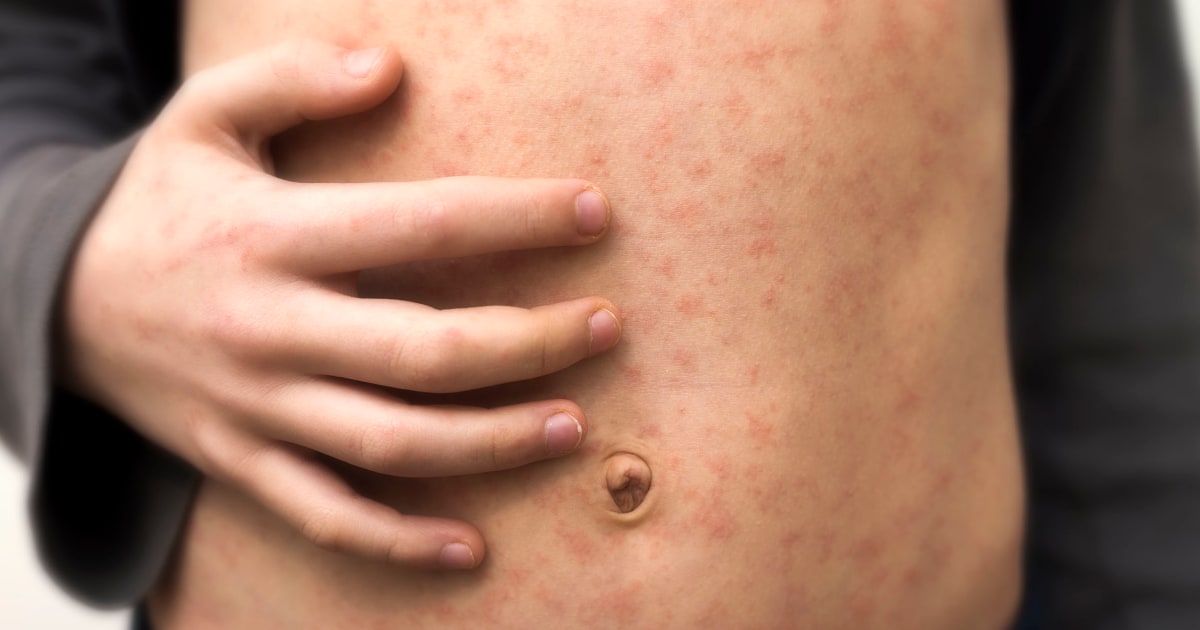01 view
Written by: Commentary Editing Room
2021-01-26 17:30
Last update date: 2021-01-26 17:34
The government on Monday (25th) approved the emergency use of the new crown vaccine ("Fubitai" vaccine) co-operated by Fosun Pharma and BioNTech in Hong Kong, and vaccination is expected to start in late February.
However, to achieve herd immunity through vaccines, the vaccine coverage rate must reach 70% or more. This not only tests the government's vaccine bidding progress, but also depends on how many citizens are willing to vaccinate.
The government announced on Monday that it has approved the emergency use of the "Fobitai" vaccine jointly developed by Fosun Pharma and the German pharmaceutical company BioNTech in accordance with the "Prevention and Control of Diseases (Use of Vaccines) Regulations".
The vaccines are currently undergoing safety and quality testing and will be shipped from Germany to Hong Kong in late February and the first batch of injections will be launched.
Another batch of Oxford AstraZeneca vaccine ordered is expected to arrive in the second half of the year.
As for the domestically produced Kexing vaccine, which was originally expected to arrive first, it has been repeatedly delayed due to clinical reports, and it is temporarily unknown when it will be put into use.
The Vaccine Expert Advisory Committee approved unanimously to support the introduction of BioNTech vaccine in Hong Kong.
(Photo by Yu Junliang)
A lot of preparation before vaccination
There is a timetable for the arrival of vaccines. The important task of the government in the new phase is to give citizens the confidence to vaccinate, so that these vaccines can be used as they are.
The British polling agency YouGov interviewed 1,035 Hong Kong citizens from December 30 to January 5. Only about half of the respondents were willing to be vaccinated.
The survey conducted by the Faculty of Medicine of CUHK is even worse. Only 37.3% of Hong Kong adults surveyed are willing to vaccinate.
Of course, since the vaccine has not yet arrived, the public will have greater reservations out of the unknown, and the polls are difficult to make accurate.
However, the authorities should also understand what the public is resisting and what factors affect their acceptance, so as to prepare for the vaccination plan that is about to begin.
On the one hand, people's doubts are naturally related to the quality of the vaccine, that is, the effectiveness of the vaccine, the proportion of clinical side effects, and the medical reputation of the vaccine production area.
CUHK's vaccination confidence survey showed that more than 60% of the interviewees believed that the vaccine production area and clinical tests less than 50,000 people would reduce the acceptance of the vaccine.
The government currently discloses a lot of data to explain the reasons for choosing vaccines. For example, the approved vaccines mentioned on Monday, the authorities have the latest clinical data, safety update reports, and quality certification documents for each batch of vaccines produced by pharmaceutical factories.
The Kexing vaccine, which was supposed to be used first, has not yet been given an expected vaccination date because the data report has not been updated.
In addition to continuing to improve the openness of clinical data and safety reports of various vaccines, the government can also invite more recognized experts and scholars to publicly explain the clinical performance and safety of vaccines, so that the public can increase their confidence by increasing awareness.
While the CoronaVac vaccine developed by China Kexing Biological has been sent to Turkey and Indonesia, China is also introducing foreign vaccine technology.
Fosun Pharma and BioNTech of Germany formed a joint venture company to build a production base in China to produce a novel coronavirus pneumonia mRNA nucleic acid vaccine.
The picture is a photo provided by the Turkish Ministry of Health, which shows that CoronaVac arrived in Ankara on December 30.
(AP)
Should be pragmatic to gain social confidence
In addition to the clinical data provided by the pharmaceutical companies themselves, the data and feedback after the vaccines are vaccinated in Hong Kong are also closely related to the confidence of local citizens in vaccination.
Therefore, if a sufficient number of volunteers can be recruited for vaccination first, or if sufficient incentives are provided for a group of citizens to undergo the first vaccination, an open platform will be established for the first batch of injections to report the status of the injection to other citizens, etc Data and circumstances, etc.
When the data is large enough and the response is good, it will naturally increase the motivation of other citizens to inoculate.
For example, electronic questionnaires from multiple medical groups show that the acceptance of vaccines by medical staff is relatively high, close to 80%.
For example, for business people and international students who need to go out, their demand for vaccines is higher than that of ordinary citizens. If the government has reasonable incentives such as travel discounts, it may also increase their participation rate.
By then, when Hong Kong has the first batch of data and the response is good, it is expected to lead to an increase in the overall injection rate.
In addition, CUHK's survey report also shows that confidence in vaccination is related to age. The 25 to 34-year-old age group has the lowest acceptance, only 24.4%, while the elderly over 65 have the highest acceptance, reaching 47.6%.
Since many young people have lost all confidence in the government after the anti-amendment campaign, a recent study by CUHK pointed out that 90% of interviewed high school students have no confidence in the government. This may indicate that vaccine acceptance and citizens’ attitudes towards the government are also related Closely related.
Although this is not a problem that can be solved in a moment, it is a problem that must be solved. Therefore, the government must improve communication with society, show sincerity to listen to public opinion, so that vaccine promotion, various epidemic prevention policies, and even overall public governance will not be affected. Get twice the result with half the effort.
[New Coronary Pneumonia] After the anti-epidemic year, Jordan has learned the lessons to get out of the predicament
The principle of market restriction and aggregation must be relaxed in an orderly manner
01 depth
New crown pneumonia new crown vaccine China Kexing 01 view















